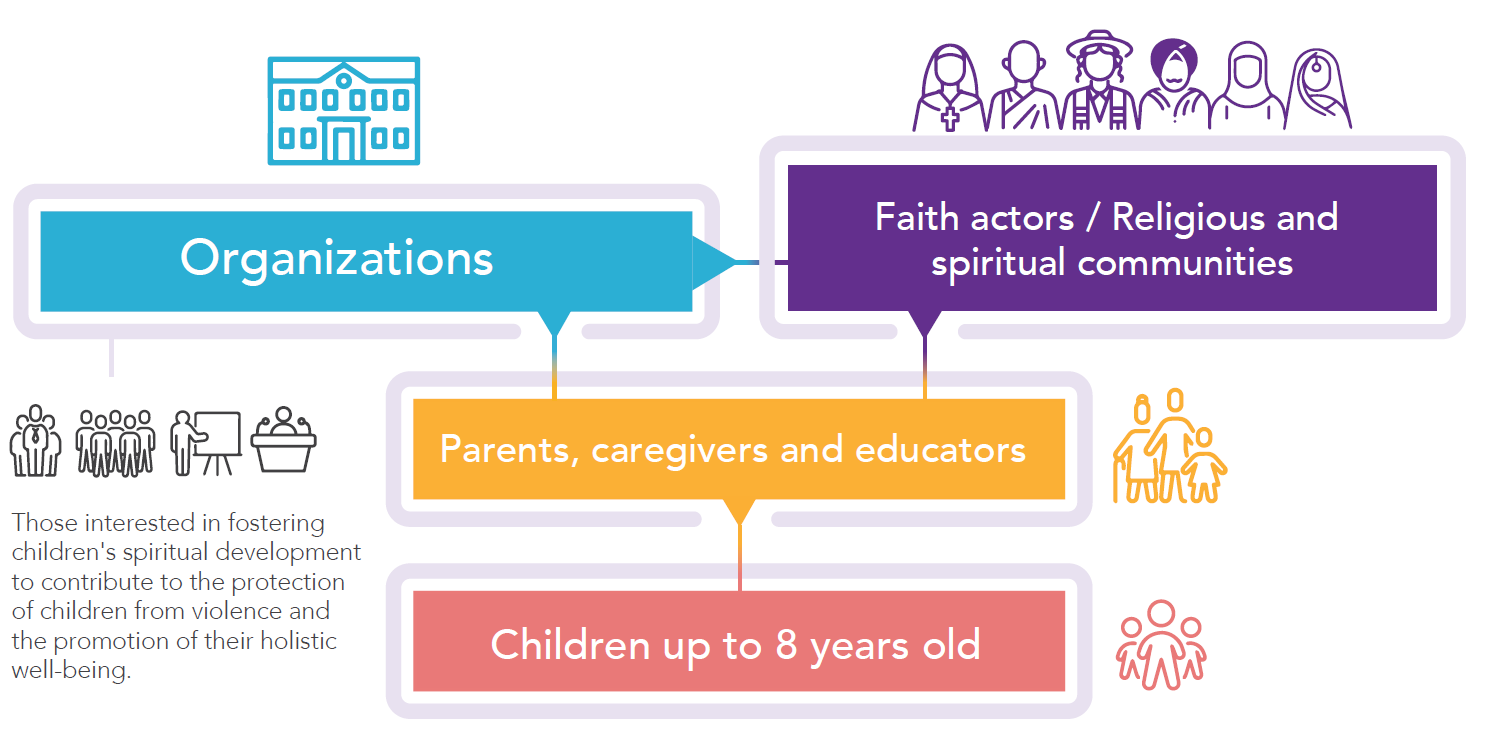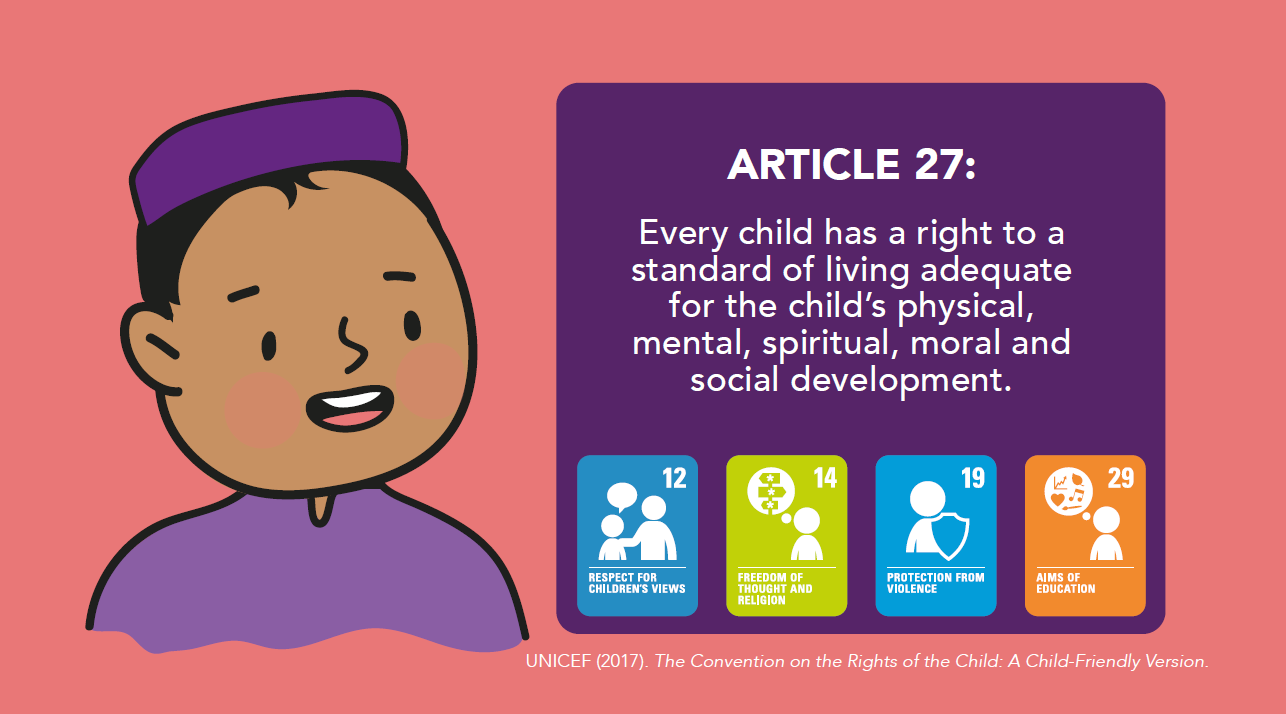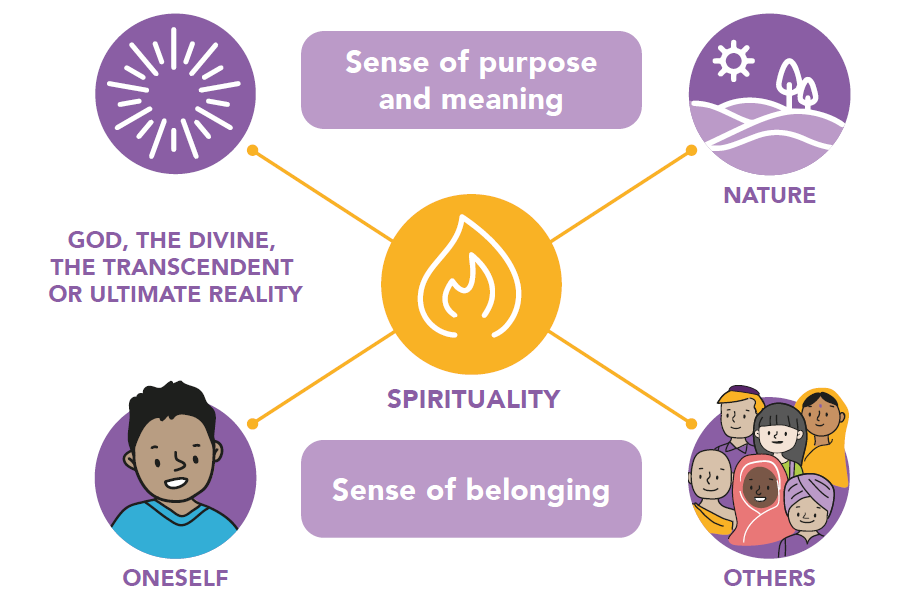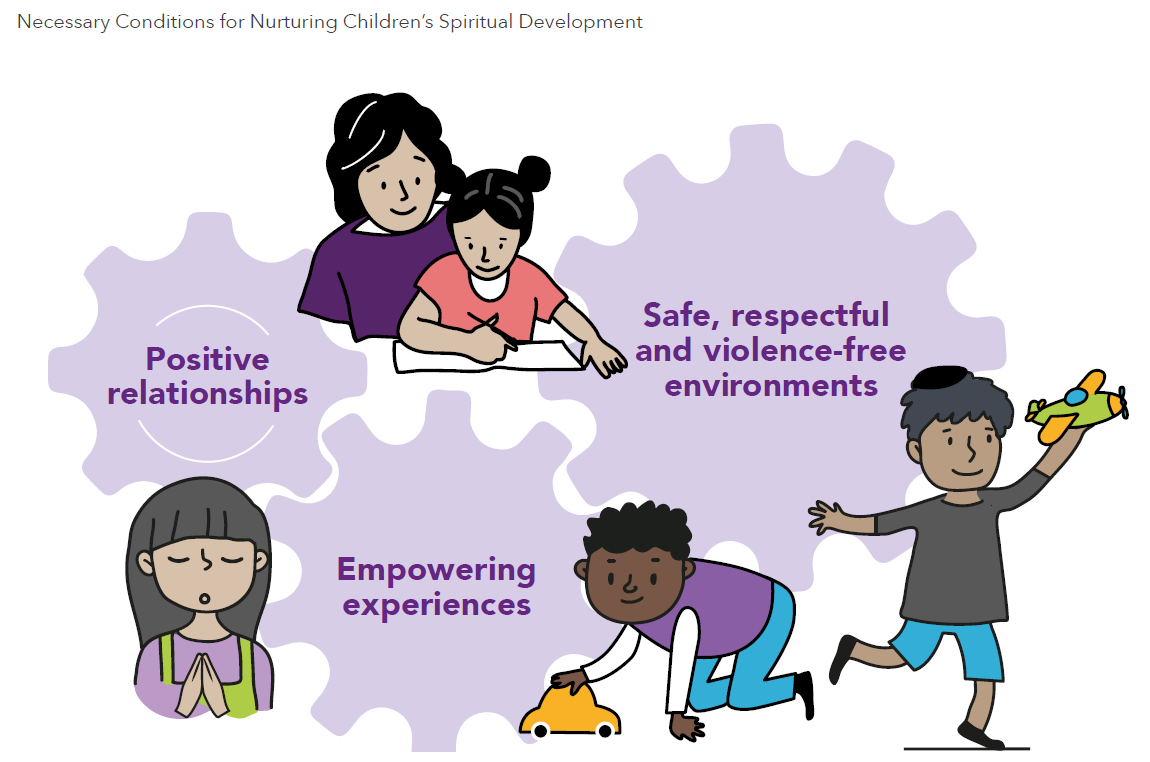TOOLKIT
Nurturing the Spiritual Development of Children in the Early Years
A Contribution to the Protection of Children from Violence and for the Promotion of Their Holistic Well-Being
A Toolkit to help equip faith actors to engage actively in the protection of children from violence in early childhood and the promotion of children’s holistic well-being by supporting parents, caregivers, educators and communities to nurture children’s spiritual development and take an active role in addressing violence in early childhood.
Who is the Toolkit for?
The Toolkit is tailored for organizations — faith-based organizations, religious communities, or other civil society organizations interested in the spiritual development of children — and is designed to complement holistic development approaches and to be integrated in existing parenting, education and/ or ECD programs. The Toolkit presents a Learning Program for Adults as well as Activities for Children.
The Learning Program for Adults is designed to be used by religious and spiritual leaders and faith actors, as well as parents and caregivers of children up to 8 years old, educators and other community members. The Toolkit is also for anyone interested in the spiritual development of children and its contribution to the protection of children from violence and the promotion of their holistic development and well-being.
https://www.traditionrolex.com/25

A Child Rights Approach
This Toolkit is designed to support parents, caregivers and educators to nurture the spiritual development of children in the early years.
The approach of the Toolkit is rooted in Article 27 of the Convention on the Rights of the Child, which affirms the right of every child to a standard of living adequate for the child’s physical, mental, spiritual, moral and social development.
It provides critical tools and resources to better equip all those who would assist these key adults in children’s lives to create safe, loving, violence-free and respectful environments, strengthen their positive relationships with children, and provide empowering experiences that allow children to develop holistically

The Spiritual Development of Children
Spirituality refers to the connection and relation with the self, with others, with nature, and with that which is referred as God, the Divine, the Transcendent, or Ultimate Reality. A spirituality that connects these multidimensional relationships helps children to be grounded in their sense of self and helps them connect to their roots. It builds a sense of belonging, strengthens children’s identity, ethical values, prosocial behaviors, and positive relations with others. It also lifts children up to develop a sense of purpose and meaning around who they are, what they do, where they live and what they are meant to be and want to become.


Spiritual development is understood in this Toolkit as a central aspect of holistic development that enables a gradual and progressive unfolding of children’s innate ability to connect with themselves, others, nature, and with what people refer to as God, the Divine, the Transcendent, or Ultimate Reality, in the search for meaning, purpose, belonging and transcendence.
Children’s spirituality needs to be nurtured for it to flourish and develop. Children’s spiritual development cannot happen in a vacuum; it requires safe, respectful, violencefree environments, positive relationships with parents, caregivers and educators, and empowering experiences for children to safely pursue and nourish their own spiritual development. While the potential for expression of spiritual capacities already lies within the child, it is the primary role of the family — and particularly, parents, caregivers and educators — to nurture them through their relationships, experiences and stimulation from the environment.

Find here religious and spiritual scriptures to support the implementation of the Toolkit
Monitoring, Evaluation and Learning
A critical aspect of any program’s implementation is conducting monitoring and evaluation to ensure that necessary adjustments can be made throughout the process and that the learning outcomes and results of the program can be utilized for improvement, evidence-building, replication, and scalability.
The Toolkit’s Monitoring and Evaluation Framework is being developed in collaboration with the Global Center for the Development of the Whole Child at the University of Notre Dame from 2023 to 2025 and will be available online.
In the meantime, all Booklets have the necessary Monitoring Forms to be used during the implementation of the programs.

